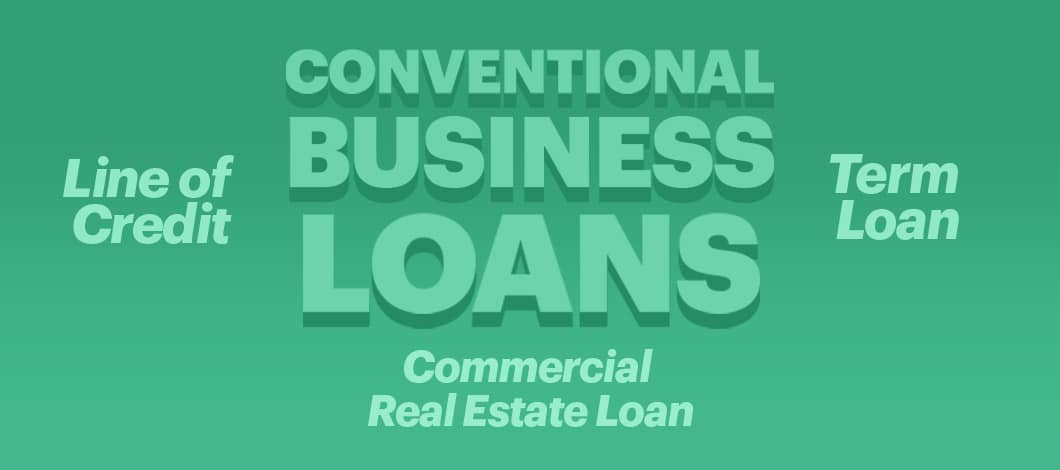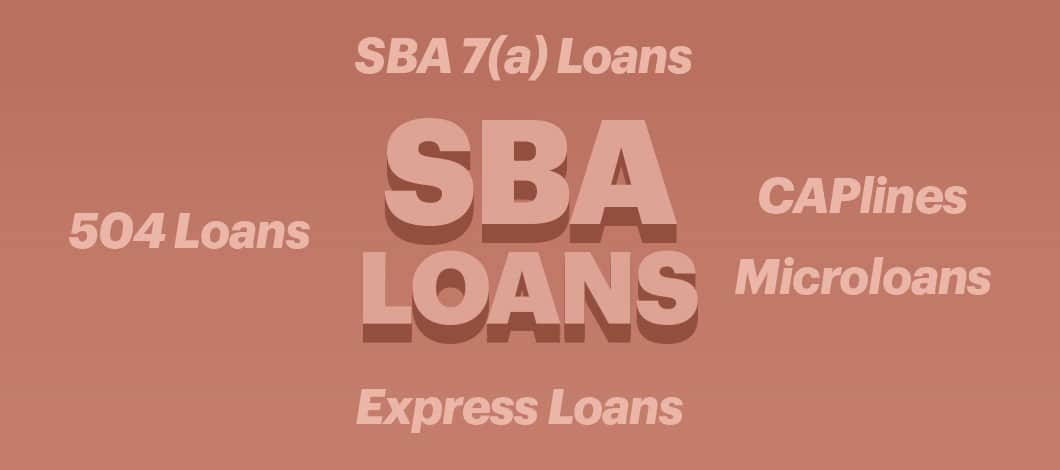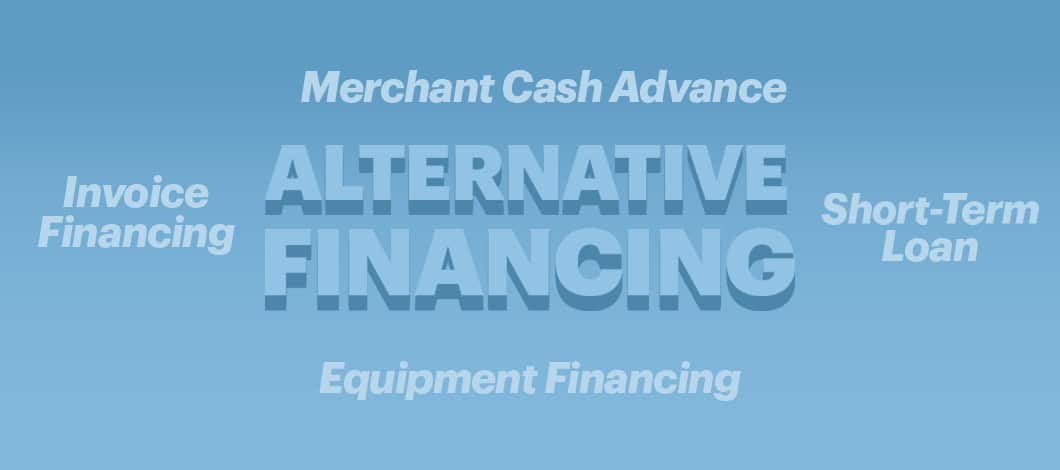With so many small business funding options available these days, how do you know which one to choose — or which one you’d likely qualify for?
We’re letting you in on the advantages and disadvantages of each loan type as well as when it might make sense to choose one funding type over another.
Financing a Business With Debt
When you’re looking for a small business loan, keep in mind there are various types of loans that can be used in many different ways, and every loan is unique.
For instance, operating capital typically is handled differently than a mortgage. Indeed, they are distinct loan products with different application processes, requirements and stipulations on how funds are used.
Here are a few things to consider:
- Interest rates: These rates show how much you’ll pay for borrowed money over a specific loan term. The higher the rate, the more you end up paying on your loan. Compare rates of each loan offer to find out how much you’d owe.
- Factor rates: These reflect the total cost of borrowing. Keep in mind factor rates may be expressed on a per-month or per-week basis. Be sure you understand how your rate is calculated and what it will cost you.
- Term: How long a loan takes to reach maturity and when it needs to be repaid. You may have ongoing, regular payments to make on your loan throughout the life of the financing. Short-term loans typically are designed to reach maturity in 18 months or less. Long-term loans may last for several years.
Gather a few quotes before applying. Also, never agree to borrow without reviewing all the information provided along with the terms.
Here are some of the most popular loans and financing options business owners pursue.
Conventional Loans
Conventional loans are offered through banks and credit unions. These lenders offer a wide variety of loan types, but typically have high expectations and standards for qualification. Oftentimes business owners will need to provide personal credit history information to qualify.
Here are some characteristics of conventional loans:
- Loans designed for a variety of terms, uses and rates to fit nearly any need are available
- Amounts vary depending on applicant qualifications
- Repayment terms may vary
- May have significantly tighter loan requirements and limitations than alternative loan options
- Depending on the loan, may require collateral
- May be more difficult to qualify for if you don’t have an established banking relationship
The following are common financing options you’ll find with conventional lenders:
1. Business Term Loans
Business term loans offer a lump sum of money to borrowers. Term loans can be short or long in length. As such, repayment times can range between 1 year and 7 years, though some longer term bank loans may extend to 10 years.
Pros
- Few, if any, restrictions on usage
- Often favorable interest rates
- Fixed repayment schedule
- Higher funding amounts than many other loan types
- Longer loan term often equates to lower installment payments
Cons
- Interest rates could be variable
- Potential prepayment penalties
- Often requires a personal guarantee or collateral
- Minimum borrowing amount may be required (e.g., $10,000)
- Longer loan term may mean you could be paying more in interest over the life of the loan
Who Could Benefit
If you have a good credit score and own an established business, a term loan could be a good fit. A credit score in the 700s is preferred, but applicants with scores above 620 may be considered.
While you could use a term loan for any number of purposes, here are a few examples of when it might make sense:
- Acquiring another company
- Paying for a partner’s buyout
- Purchasing expensive new technology
Keep in mind, when compared to short-term loans, longer term loans are best for costlier purchases because the amount you’ll need to repay is spread out over a longer period.
2. Business Lines of Credit
With a line of credit, your business gets flexible access to capital that you can use as needed once you’re approved. Applicants receive approval for a loan up to a certain amount, such as $250,000, and can then charge up to that amount whenever needed.
Pros
- Only pay interest on the amount you withdraw
- Typically revolving, meaning as long as you make on-time payments and don’t exceed your credit limit, you can keep borrowing over and over again, subject to renewals
- Unsecured credit lines are available
- Interest-only payment options may be available
- Conventional business lines of credit are often structured with monthly payments
Cons
- Could have an annual fee or maintenance fees
- More likely to have variable interest rates
- If you miss a payment, your rate could go up
- Generally, lines of credit have lower limits than term loans
- You may be charged a draw fee when you tap into your credit line
- Higher credit line amounts may require collateral
Who Could Benefit
If you find security in having contingency funds, this option would suit your business well. Whether you need to cover an unexpected expense or need to bridge seasonal funding gaps.
If you have an established business and meet minimum annual revenue requirements, this is another option to consider. As an example, to qualify for Bank of America’s unsecured line of credit, applicants need 2 years in business and annual business revenue of $100,000.
Credit score requirements for this type of financing usually range from 550-575.
3. Commercial Real Estate Loans
If you’re looking to invest in real estate for your business, whether an office space or a storefront, or purchase an income-producing property, a commercial real estate loan could help. With these loans, the lender will put a lien on the property you’re purchasing to minimize their risk.
Pros
- Long repayment terms
- Higher borrowing amounts available
- Financing often 80% of purchase price
- Can be available to refinance, renovate or purchase a new property
Cons
- Can be difficult to qualify for
- May have prepayment penalties
- Could have a balloon payment at the end of the term
- Property may need to be owner-occupied
Who Could Benefit
If you’re looking to get a better rate or terms on an existing commercial real estate loan, buy a new property or expand your business by purchasing another location, this could be a great option for you.
That said, you should have funds available to offer a down payment, which could be 20%-25% or more. Additionally, a score of 660 or higher is often required to qualify for a commercial real estate loan.

SBA Loans
While Small Business Administration (SBA) loans aren’t actually issued by the agency itself, they are offered by banks that are recognized as SBA-certified lenders.
The small business loans banks offer that are designated as “SBA loans” are backed by the federal agency’s loan guaranty. If a borrower of an SBA loan defaults, the SBA will buy the portion of the loan it guaranteed, which means less risk for lenders.
1. SBA 7(a) Loans
Standard SBA 7(a) loans are available for up to $5 million. With these loans, the SBA guarantees up to 85% for loans up to $150,000 and 75% for loans exceeding $150,000. Funds can be used for real estate purchases, debt refinancing, building renovations and equipment purchases, to name a few.
Pros
- Terms range from 5-10 years, except for real estate loans, for which terms could extend to 25 years
- Lenders can’t exceed interest rate caps set by the SBA (varies by loan amount and maturity)
- Fixed and variable rate options available
Cons
- The application and approval process can take several months
- Lenders weigh collateral offered among other factors for approval
- Many application requirements to meet and documents to submit
- Some businesses can’t apply (e.g., real estate investing, lending)
Who Could Benefit
If you’ve been denied for a conventional bank loan, an SBA 7(a) loan could be an alternative to pursue if you’re not in a rush for funds. These loans offer competitive interest rates and terms, provided you meet requirements for approval. For 7(a) programs, applicants often need a credit score of at least 650.
2. SBA Express Loans
SBA Express loans are part of the 7(a) program but are designed to get capital into the hands of qualified borrowers quicker. While the maximum loan amount is typically limited to $350,000, applications are usually reviewed within 36 hours of acceptance. The SBA guarantees 50% of these loans.
Pros
- Streamlined application process
- Faster approval and funding times than 7(a)
Cons
- Strict eligibility requirements
- Less funding available than 7(a)
- Higher interest rates compared with other SBA loans
Who Could Benefit
If you need funds quickly but still want competitive rates and terms, consider an SBA Express loan. While the entire process from start to end could take 30-60 days, once approved, borrowers could receive funds within 7 days.
3. SBA 504 Loans
SBA 504 loans are specifically intended to be used to stimulate the economy. Borrowers must use funds to buy, improve or refinance fixed assets. This could be equipment or real estate.
To be considered for approval, a borrower must provide a down payment of at least 10%. Then a secondary part, referred to as a Certified Development Company (CDC), provides up to 40% of your project cost, not to exceed $5 million. Then a third-party lender generally covers up to 50% of the total loan.
Pros
- Affordable interest rates
- Total of rates and fees often lower than 7(a) loans
- Long terms (10 years for equipment or 20-25 years for real estate for the CDC portion of loan)
Cons
- Borrower down payment requirement
- Restrictions on use of funds
- Strict job creation goals to qualify for approval
Who Could Benefit
If you have money to put down and are looking for funds that you’ll use to ultimately contribute to the betterment of the community, this could be the business loan for you. Additionally, veterans, minorities and women business owners often benefit from SBA 504 loans.
4. CAPLines
CAPlines are business lines of credit guaranteed in part by the SBA, 75%-85% of the maximum line of credit, depending on the amount a borrower is approved for. There are several different types of CAPlines, including a seasonal, builder’s, working capital and contract line of credit. An SBA Express line of credit is also available.
Pros
- Flexible funding
- Funding can be available for as much as $5 million, with the exception of SBA Express CAPlines, which max out at $500,000
Cons
- Can have strict requirements (e.g., seasonal CAPlines must be used to finance seasonal increases specific to inventory, accounts receivables or increased labor costs associated with seasonal demand)
- Some CAPlines may be non-revolving, meaning funds you use aren’t replenished as you pay down your debt
Who Could Benefit
If you meet the requirements for a 7(a) loan and are looking for competitive rates and terms, consider a CAPline. It’s a flexible form of financing at your fingertips when you need it.
5. SBA Microloans
SBA microloans can help small businesses obtain $500-$50,000. Funds can be used for working capital, inventory, supplies, equipment and more. Interest rates often range from 8%-13%, according to the SBA.
Pros
- Fixed rate financing
- Affordable monthly payments
- Technical assistance available
- Loan repayment terms can extend up to 7 years
Cons
- Funds can’t be used to buy real estate
- Funds can’t be used to pay off debt
- May need to attend training or meet planning requirements
Who Could Benefit
If your funding needs are relatively minimal, consider a microloan. Additionally, these loans can be especially helpful for small businesses owned by women, minorities, veterans and low-income individuals.

Alternative Financing
While alternative lenders may be able to offer you financing you’d find at many banking institutions, such as business lines of credit and SBA loans, they’re known for other fast funding options. Online lending also is a viable financing outlet for many business owners who may have been turned down elsewhere. In fact, in 2020, one-quarter of small businesses took out an online loan, according to a survey by JPMorgan Chase.
Here are some of the most common online financing options.
1. Merchant Cash Advances
A merchant cash advance can be a costly financing option for small businesses but can serve as another source of operating capital. How much you qualify for may vary. Advances are repaid on a daily or weekly interval and designed to be repaid over 3-24 months.
Pros
- Fastest funding option (same-day funding in some cases)
- Flexible funding option you can use for just about anything
- No collateral required
- Can qualify even with poor credit
Cons
- More expensive than some other loan options
- Installment payments can be high
- Funding term is short
- Payments can be daily or weekly
Who Could Benefit
If you’ve been denied for other financing, don’t have the best credit and need near-immediate access to capital, this could be a good option to support short-term business needs.
2. Invoice Financing
If unpaid invoices are holding your business back, invoice financing may be the right option. Invoice financing, a type of accounts receivable financing, gives you access to your funds sooner so you can start using that cash for your business. This option is generally available only for businesses that provide goods or services to other businesses. Invoice financing is just a way of getting paid early from money you’re already due.
Pros
- Fast access to capital
- Can use funds as needed
- Your invoice serves as collateral
- Credit score not as important as invoice quality
- In some cases, financing is available for up to the amount you’ve invoiced
Cons
- Can be costly
- Potential for holdbacks
- Potential for liability if invoices aren’t paid
- In some cases, you could relinquish collection control to the financing provider, which could be perceived negatively by customers
Who Could Benefit
Invoice financing can work well for entrepreneurs in certain industries, such as transportation, construction and trade, to name a few. If you’re a business-to-business company, you could access financing quickly using your customer invoices as collateral.
3. Short-Term Loans
Short-term loans have repayment terms that last for a few months to a little more than 1 year. Depending on the loan terms your payment frequency may be daily, weekly or monthly.
Pros
- Fast to fund
- Easier to qualify
- Streamlined application process
- Collateral often not required
- No long-term commitment
Cons
- Higher interest rates
- Payment installments may be daily or weekly
- Blanket lien may be placed on the business
- Smaller funding amounts than long-term loans
- Potential for significantly higher payments because the loan term is shorter than other loans
Who Could Benefit
Short-term loans are an option if you want to jump on an opportunity that could help you scale your business. Alternatively, if you need working capital over a short term or funds for a temporary expense, this type of financing could be an option for your business. Buy inventory you need to keep business going or cover an emergency repair, for instance.
4. Equipment Financing
Need specific equipment, technology or machinery for your small business? If so, consider an equipment loan. With this type of financing, the equipment typically serves as collateral for the loan. In some cases, that means you could get up to 100% of the financing you need. Repayment terms often range 1-5 years.
Pros
- Self-collateralizing
- Frees up cash flow
- Could be used to buy or lease equipment
Cons
- Limited to equipment, machinery and tools
- Down payment may be required in some cases
- Rates could be higher than other conventional loans
Who Could Benefit
If you need to revamp office equipment, upgrade appliances, buy a new piece of machinery for a one-time project or something similar, equipment financing could be a good fit for you.

Applying for Business Financing
Depending on the loan you’re applying for and the type of lender, your application for a small business loan may require the following:
- Personal credit check: You, the owner and borrower, may need to provide your credit information, and lenders may run background checks when you apply for a loan.
- Bank statements: You should consider preparing copies of your business bank account statements and information.
- Credit-card receipts: Receipts for credit card payments you’ve received are another part of many business loan applications. Your lender may ask to see 6 months of receipts from payments you’ve received via credit card.
- Business expenses: You may need to show what your typical business expenses are for a specified period, such as office rental agreements and vendor contracts.
- Invoices: Some loan applications require you to show invoices for customer and client payments you expect to receive in the future.
Once you’ve started shopping around for quotes, you can generally determine what types of evidence a lender expects to see.
Ready to Explore Business Financing Options?
If you’re ready to consider the best financing options for a business, jot down a few lenders you’re considering and gather quotes. Remember to compare the terms and be sure to read the fine print carefully.










